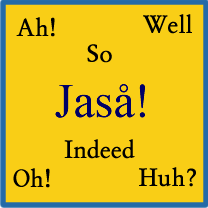
I’ve noticed that there are several ways to say now in Russian. In some contexts you use сейчас (sejchas), and in others теперь (teper’), but I haven’t worked out when to use each one yet. So I thought I’d investigate.
Сейчас means now, just now or (only) just [source]. For example:
- Он сейчас работает = He’s working just now
- Сейчас приду = I’m just on my way
- Сейчас же! = Right now!
- прямо сейчас = right now
- Я действительно хочу заняться чаем сейчас = I’d really like to get some of that tea now
Сейчас comes from сей (this) & час (hour, o’clock, time, time of day) [source].
Сей also appears in сегодня (sevódnja — today).
Часы (chasy) = watch or clock.
Теперь means now or nowadays [source]. For example:
- Теперь обсудим следущий вопрос = Let us now move on to the next question
- А теперь мне пора представить вам участников = And now it’s time for me to introduce to you our contestants
- И теперь начнем нашу совместную жизнь = So, now we’re going to start a life together
From these examples, I’m guessing that сейчас is more immediate than теперь. Is that right?
There are other ways to say now in Russian it seems:
- в настоящее время = now, currently, at present
- к настоящему времени = by now
- время от времени = now and then or again
- впредь = from now on
- до сих пор = until now
- пока всё = that’s all for now
Теперь comes from the Old East Slavic топере (topere), and is apparently used in contrast with the past [source].
Welsh also has several words for now [source]:
- nawr = now; shortly, presently (South Wales)
- rŵan = now; shortly, presently (North Wales)
- bellach = any more, henceforth, from now on, again; now, by this time, in the end; moreover
- ar hyn o bryd = now, at this (point in) time, at the present moment, at this juncture
- erbyn hyn = by this time, by now
- yn awr = now, forthwith
- awron = now, at present, at the present time, nowadays, by this time
Do other languages have several ways to express the idea of now?
Так, пока всё, пока пока (So that’s all for now, bye bye)


